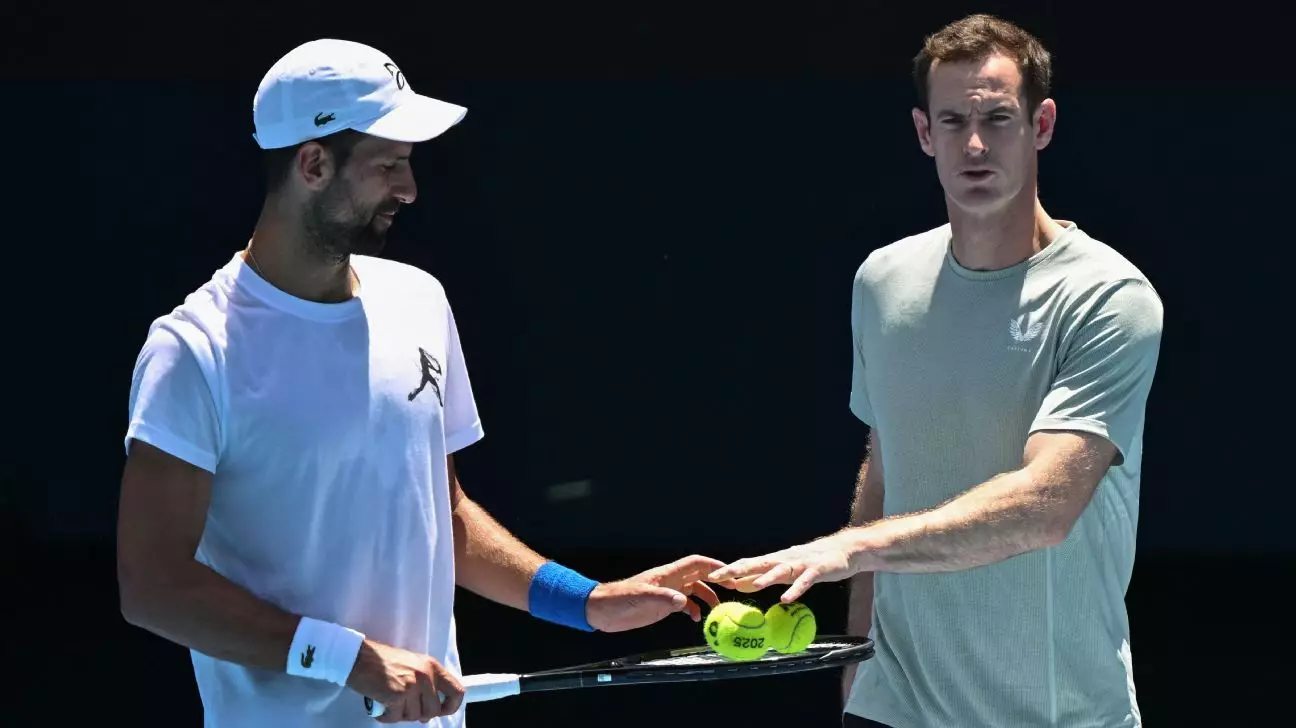The recent decision by Andy Murray and Novak Djokovic to end their coaching collaboration prematurely has sent shockwaves through the tennis community. Their partnership, which lasted only six months, came to an abrupt halt following a series of lackluster performances from Djokovic. This split raises questions about the pressures athletes face and the high-stakes nature of performance in professional sports. For Murray, a two-time Wimbledon champion and former world number one, this was not just a chance to mentor a peer; it was a unique opportunity to forge a deeper friendship and enhance both players’ skills.
The Dynamics of Their Partnership
Murray’s role as Djokovic’s coach was experimental, blending two competitive and successful backgrounds into a segment of the sports world that thrives on results. Given both men’s remarkable histories on the court, this partnership was expected to yield tangible benefits. Djokovic’s acknowledgment of Murray’s efforts—thanking him publicly for “the hard work, fun, and support” of their time together—speaks volumes about the mutual respect they had for one another. However, tennis is unforgiving; frequent criticism and dissected performances underscore that failure to meet expectations can lead to swift changes, rendering what once seemed a promising collaboration into a brief chapter in both athletes’ careers.
Understanding the Results
Djokovic’s performance in the early season looked promising, with a semifinals appearance at the Australian Open and a final berth at the Miami Open. Yet, the results spiraled downward, culminating in his exit from subsequent tournaments. Physically, Djokovic faced challenges that hampered his efforts, including injury setbacks. The decision to forego the Italian Open and accept a wildcard for the Geneva Open reflects his need to recalibrate and regain confidence on the court. Each loss didn’t just contribute to his disappointing statistics; they also intensified the pressure on a player of his caliber to pivot strategies.
The Impact of Age and Pressure
At nearly 38, Djokovic’s career is at a delicate juncture where the battle against age becomes more apparent. While he has achieved extraordinary feats—securing numerous Grand Slam titles—the internal struggle to maintain peak performance against younger, emerging players ramps up competition. This introspection during a coaching partnership might have offered him insights into not just playstyle, but also into mental resilience. Yet, with the staggering demands of global tennis, the ability to meld personal mentorship with high achievement remains fraught with difficulties, resulting in the need for reevaluation when things don’t go as planned.
Looking Ahead: Opportunities for Growth
The end of the coaching alliance doesn’t signify failure, but rather an opportunity for growth for both athletes. Murray, with his wealth of experience and understanding of high-stakes pressure, could continue to mentor others or even himself return to peak performance. Conversely, Djokovic may use this moment to rethink his approach and find new methodologies for training and development. The pursuit of an eighth Wimbledon title looms ahead, but with it comes the understanding that successful careers often require adaptability and relentless pursuit of innovation. This unexpected split might very well become a catalyst for renewed focus and reinvention in both their paths moving forward.

